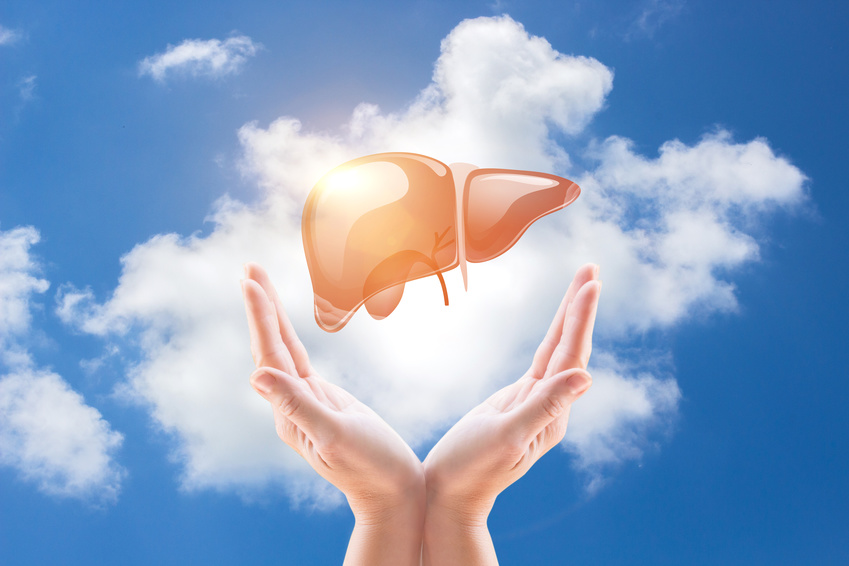12 Useful Tips To Have A Healthy Liver
January 25 2018Loving your liver is pretty easy when you know how. Here are our top 12 tips you can follow every day for good liver health.

1. Maintain a healthy weight
It’s estimated that 60% of Australians are overweight or obese. And of those classed as obese, approximately 30% will have fatty liver disease, putting them at high risk of liver scarring (cirrhosis), liver failure and liver cancer.
If you carry any excess weight around your middle, it can cause insulin resistance which often leads to fatty liver disease. Measure your middle and keep it at a healthy circumference. Men should maintain a waist of less than 102cm and women, less than 88cm. Exercising and eating a diet that’s low in fat and high in fibre, vitamins, antioxidants and minerals will help you maintain a healthy weight and liver.
2. Avoid fad diets
Fad diets that make your weight yoyo can put excessive stress on your liver. Avoid any products that promise large amounts of weight loss in an unrealistically short period of time. These diets are usually lacking in essential nutrients and are not beneficial. Aim to lose weight at a healthy rate of ½ -1kg per week.
Liver cleansing and detox diets should also be avoided. Contrary to popular belief, no particular diet is liver cleansing, but a healthy diet improves wellbeing. Ask your doctor or dietitian to help you create a healthy and nutritious diet plan.
3. Limit your fat intake
High levels of fat in the blood (hyperlipidaemia) and high levels of cholesterol (hypercholesterolaemia) are common causes of fatty liver disease. Keep your levels low by keeping your fat intake low. And of the little fats you do eat, make sure they’re unsaturated (poly- and monounsaturated fats). If a low fat diet isn’t working for you, speak to your doctor about medications that can help.
4. Drink alcohol in moderation
Sensible consumption of alcohol is critical to your health. While alcoholism is more common among men, women are more susceptible to the adverse effects of alcohol on the liver. In fact, it takes as little as 20 grams of alcohol daily (only two standard drinks) for women to develop liver problems. If you can’t cut back, talk to your doctor about getting professional help.
5. Go for regular blood tests
A blood test is the best way to keep an keen eye on the levels of fat, cholesterol and glucose in your blood – all of which are associated with fatty liver disease. Too much glucose can be an indication that you have Impaired Glucose Tolerance or Diabetes – in both cases you’ll need to carefully control your blood sugar levels through diet, medications and/or weight loss.
Have you ever experimented with intravenous drugs? Did you have a blood transfusion, or organ transplant prior to 1992? If so, make sure you get tested for hepatitis C.
6. Quit smoking
It’s been proven that smoking cigarettes is linked to the development of liver cancer. Smoking can also enhance the toxic effects that some medications (such as Paracetamol) have on the liver. Talk to your doctor, or ring Quitline to get help.
7. Get a jab
Talk to your doctor about getting vaccinated against hepatitis A and B. If you choose not to get vaccinated against hepatitis A, make sure you avoid sushi, or raw/partially cooked clams, oysters, mussels and scallops, as these fish often live in hepatitis A-contaminated rivers and seas. If you choose not to get vaccinated against hepatitis B, practice safer sex.
8. Ask your doctor
Mixing medications is never advised without seeking advice from your doctor or pharmacist. This applies to herbal supplements as well as prescription and over-the-counter drugs. Some medications require the liver to work extra hard to metabolise them, and taking too many medications at once can damage the liver. Some herbal supplements can actually be toxic to the liver, such as kava, comfrey, chaparral, kombucha tea, pennyroyal and skullcap.
9. Protect yourself
Practice safer sex and protect yourself from hepatitis B. Unlike hepatitis B, hepatitis C isn’t classified as a sexually transmissible infection, but if there is a chance of blood to blood contact, you should practice safer sex. Less commonly, toothbrushes, razors and other personal care items can also transmit hepatitis B or C, so don’t borrow, or share yours with anyone!
10. Be aware of drug risks
Some illicit drugs and the chemicals they are mixed with can be toxic to the liver. Intravenous drug use is also commonly known to transmit hepatitis B and C. If you currently use intravenous drugs, don’t share needles – take advantage of a needle exchange program.
11. Don’t ignore your liver
If you’ve been told that something is wrong with your liver, ask your doctor for a referral to a liver specialist (hepatologist). You might feel fine, but the signs and symptoms of liver disease and hepatitis are not always present.
12. Take care with tattoos and piercings
If you’re keen to get a tattoo or a piercing, take extra care to find an establishment that is clean and adheres to meticulous sterilisation practices.
Visit Love Your Liver to get more tips on how to take good care of your liver.
